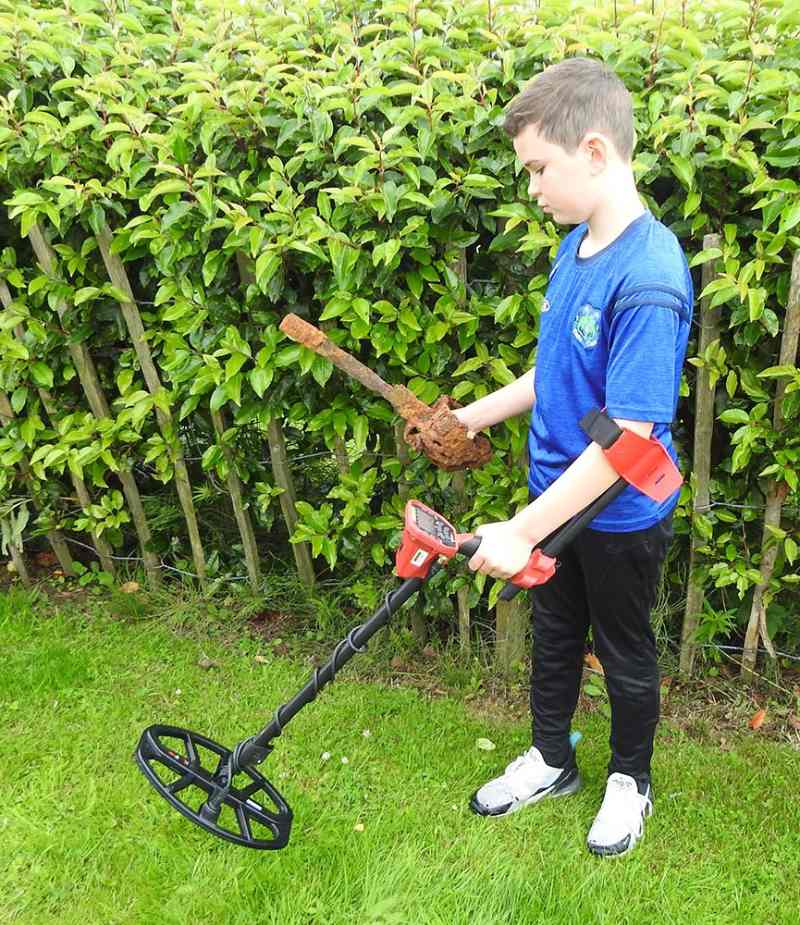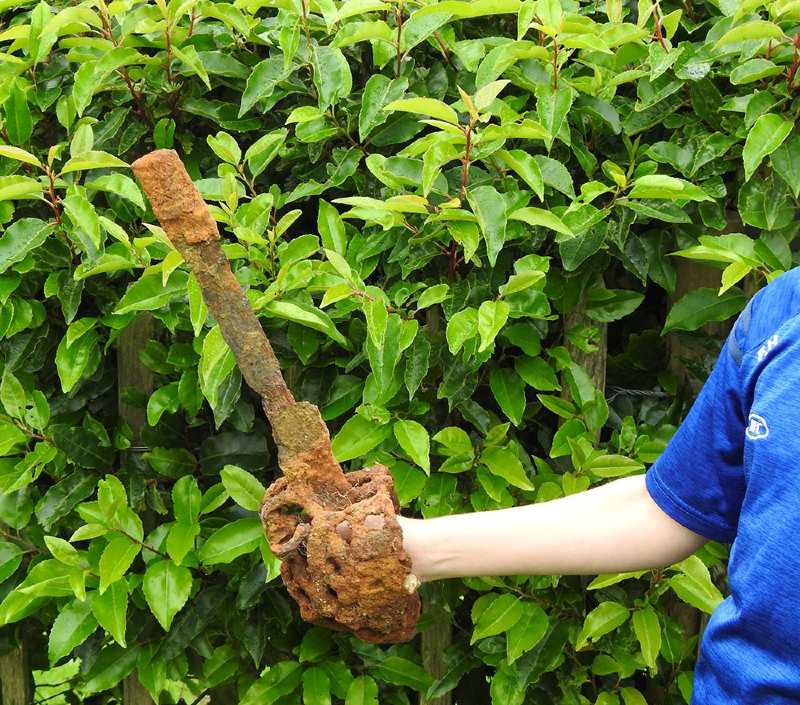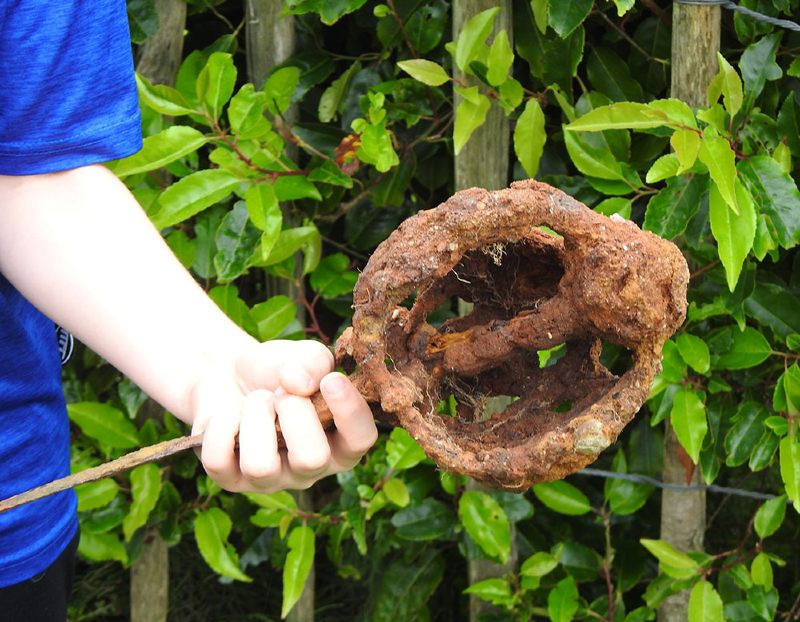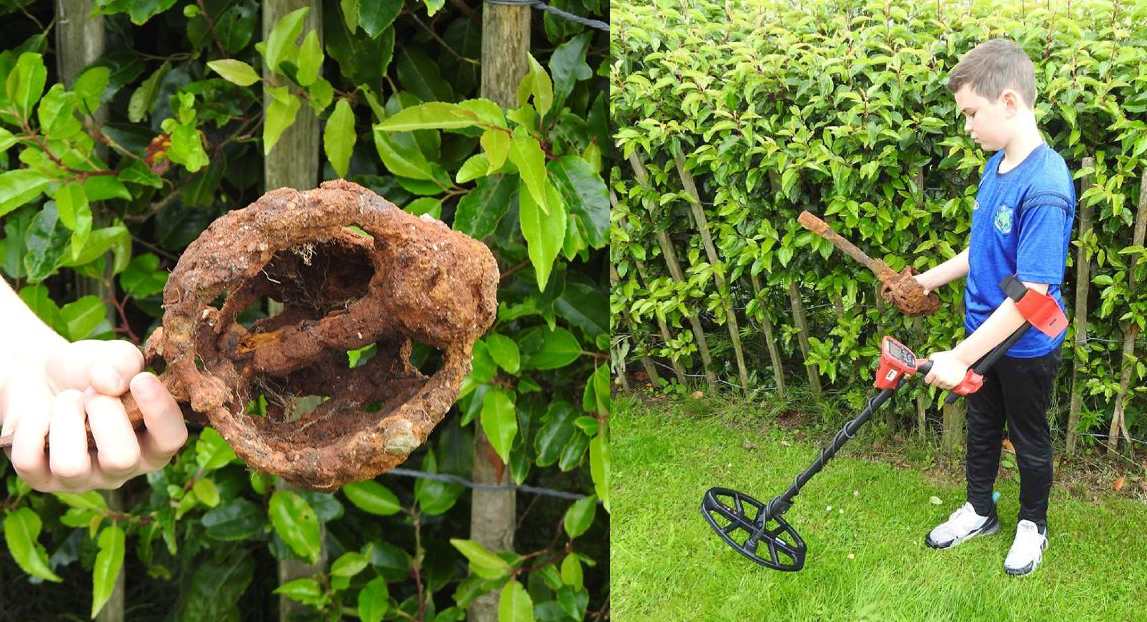Once upon a time in a green and pleasant land lived a boy who dreamed of buried treasure. Armed with a brand-new magic wand, he set out one day to see what he could find. He’d scarcely waved the wand once when, lo and behold, an ancient sword was revealed to him.

Only this wasn’t a fairy tale. It was real life. (Okay, so the magic wand was a metal detector.)
When 10-year-old Fionntan Hughes of Northern Ireland got a metal detector for his birthday in July, he was eager to try it—and the first time he did, he found a buried treasure—or more accurately, the remains of a 300-year-old sword buried on the banks of the River Blackwater near his family home.
“I felt excited… it was a sword and it was just here… I didn’t really expect anything too big,” Fionntan told BBC Newsline.
The metal detector’s first two pings turned up nothing significant, but the third ping turned out to be the charm.
Fionntan was with his father, Paul Hughes, and a cousin, when he made the discovery in Derrylaughan in County Tyrone.
MORE: Lucky Dented Penny That Saved Soldier’s Life During WWI Comes to Light 100 Years Later
The trio had no idea what the mud-covered object they dug up might be until they brought it home and cleaned it up—it was a centuries-old sword.

Philip Spooner, an antique arms dealer with 30 years’ experience, told the BBC he believes the sword’s ornate design and “plum pudding” pommel points to it most likely having belonged to an English officer.
“[It’s] a basket hilt-type sword as used by English officers and dragoons from about 1720 to 1780, or it could be a Scottish basket hilt of about 1700 to 1850.”
Once the Hughes family realized what they found, they reached out to the National Museum’s Northern Ireland archaeology curator Greer Ramsey to better identify the sword. “The last thing I want is for it to be left rusting away in my garage, deteriorating by the day,” the elder Hughes said.

For the moment, the fate of the sword remains up in the air. Where it ultimately ends up will be determined by the authorities per the U.K.’s Treasure Act of 1996.
LOOK: Man Saves Ancient Books From Dumpster Only to Look Inside Months Later and Find Amazing Inscription
Where once in a myth, a boy named Arthur pulled the enchanted sword Excalibur from a stone to become the rightful king of Britain, Fiontann Hughes won’t soon be inheriting England’s throne—but, at the end of the day, being able to find and hold a piece of living history in his hand might just prove magic enough.
Be Sure And Share The Incredible Story Of Luck With Your Friends On Social Media…





















The Treasure Act means that if you find anything of historical significance the Crown has first right of ownership of it. Then if they decide they want it for a museum or research they have to pay you the fair market value of the item. If they don’t want it you get to keep it. It is basically to encourage people to show museums etc historical items that may be lost otherwise.